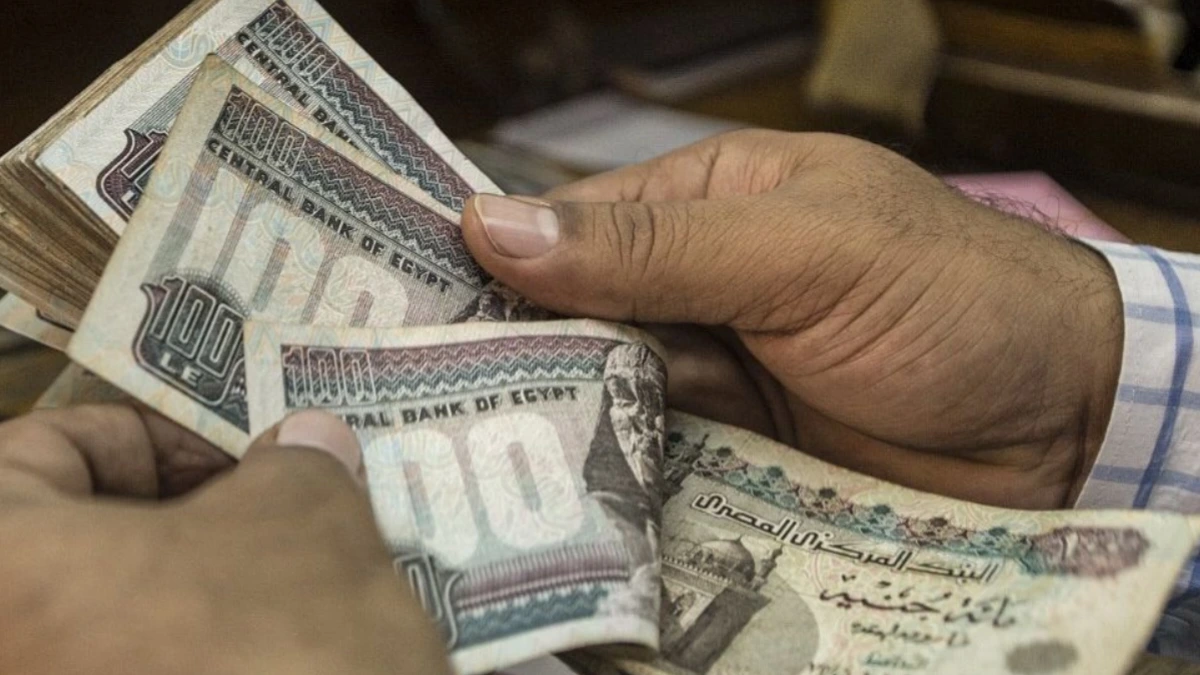CAIRO — In the 2010 Egyptian film Bittersweet, the protagonist Masry returns home after two decades in the United States, only to find that life in Cairo still runs on “tea money” small bribes paid to grease the wheels of bureaucracy.
When an official at a passport office demands “tea with 100 spoonfuls of sugar,” Masry’s confusion turns to shock as he realizes the coded request for cash.
Fifteen years later, Egyptians watching the film in 2025 see the same scene through a harsher economic lens. Once a satirical jab at corruption, the moment now underscores the country’s deepening financial distress and the normalization of paying just to get by.
In Egypt, the custom of “baksheesh” loosely translated as a tip or small bribe has long existed in daily life. It can mean a token of gratitude for a service, or, in more formal contexts, a quiet payment to move things along in a slow bureaucracy.
But as Egypt’s economy struggles with persistent inflation and multiple currency devaluations, the line between gratitude and necessity has blurred.
Since early 2022, inflation in Egypt has remained in double digits, peaking at a record 38 percent in September 2023. The Egyptian pound has lost more than half its value against the dollar since 2022, eroding purchasing power for millions.
Even after recent stabilization measures including multi billion dollar bailouts from the International Monetary Fund, the European Union and the United Arab Emirates inflation stood at 11.7 percent as of September 2024.
For ordinary citizens, those numbers translate into daily compromises. Prices of food, fuel and rent have soared, while wages stagnate. What used to be a casual “tip” is now a survival mechanism for workers earning too little to meet basic needs.
Economists say the growing reliance on informal payments reflects Egypt’s fragile labor and governance structures. Baksheesh has always been part of Egypt’s informal economy, but inflation has magnified its role, said Hany El Sayed, an economist at the Cairo Center for Economic Policy.
When real wages decline, people look for alternative sources of income, and tipping or small bribes fill that gap. El Sayed added that while such payments often compensate underpaid workers, they also distort accountability in both public and private institutions.
“It becomes a cycle low wages justify informal payments, and informal payments discourage reform,” he said. A recent study by the Egyptian Initiative for Transparency and Development found that nearly 70 percent of public service interactions involved “extra” payments in 2024, compared with 45 percent in 2018.
The report noted that the majority of these exchanges involved healthcare, licensing and administrative services. The scale of Egypt’s economic deterioration has left even modest tips out of reach for many.
In 2010, the fictional 100 pound bribe from Bittersweet was roughly equivalent to $18. Today, that amount is worth about $2. Yet for a large segment of the population, even that small sum feels unattainable.
According to Egypt’s Central Agency for Public Mobilization and Statistics (CAPMAS), more than 32 percent of Egyptians live below the national poverty line, defined at roughly 1,200 pounds a month (about $25).
Urban middle class families once considered relatively secure now find themselves rationing electricity and skipping leisure activities to cope with price hikes.
The situation has also strained the healthcare system. A 2024 survey by the Egyptian Health Forum found that 54 percent of patients or their families reported paying nurses or attendants for basic services such as water, bedding or assistance moving between rooms.
“Low salaries are the root cause,” said Dr. Sherine Abdel Rahman, a sociologist specializing in public institutions. “When a nurse earns 3,000 pounds a month, she must find a way to supplement her income. It’s not greed it’s survival.”
For Cairo resident Marina Kaldas, 29, that reality became personal when her father was hospitalized for kidney failure earlier this year.
At first, the nurses ignored his requests for water or help changing clothes, she said. “It wasn’t until I started tipping them about 50 pounds each day that things improved.”
Though frustrated, Kaldas said she understood the pressure workers face. “Low wages force people to rely on tips,” she said. “They need to have extra money.”
Taxi drivers, delivery workers and even receptionists share similar struggles. “We can’t survive on salaries alone,” said Mahmoud Hassan, a 42 year old hospital orderly in Giza.
“If I don’t get baksheesh, I can’t buy food for my family. Everything is more expensive now rice, oil, rent.”
For many, these informal exchanges are no longer optional but an expected cost of service. “People don’t even ask anymore,” Hassan added. “They just know you have to pay to get things done.”
While international assistance has temporarily steadied Egypt’s foreign reserves, analysts warn that without comprehensive reforms including wage adjustments and anti corruption measures the informal economy will remain entrenched.
“The government’s challenge is not only to control inflation but to restore trust in institutions,” said Laila Mansour, a political economist at Alexandria University. “As long as people believe services require a bribe, confidence in the system cannot recover.”
The Egyptian government has pledged to implement stricter anti corruption measures and improve salary structures in key sectors such as healthcare and education. However, progress has been slow amid fiscal constraints and competing priorities.
Fifteen years after Bittersweet first portrayed Egypt’s love hate relationship with “tea money,” the humor of the film now feels bittersweet itself.
The scene of Masry’s moral outrage, once played for laughs, has become a mirror for a nation still struggling with the price of integrity in a system shaped by scarcity.
As Egypt continues to battle inflation and economic stagnation, the question lingers not just how much a bribe costs, but what it costs a society when such transactions become a way of life.
